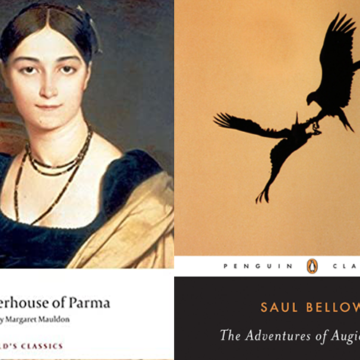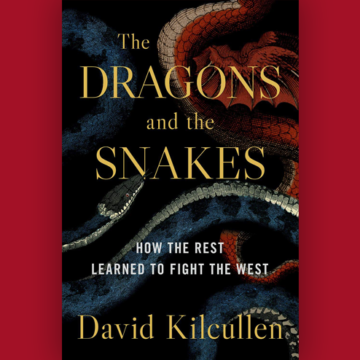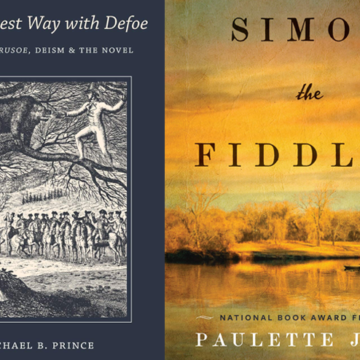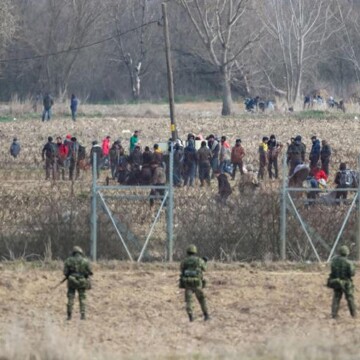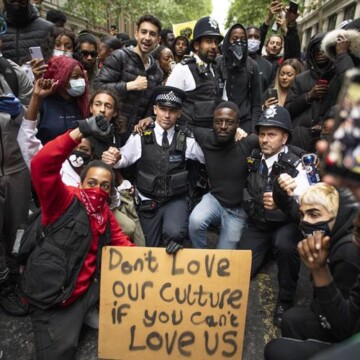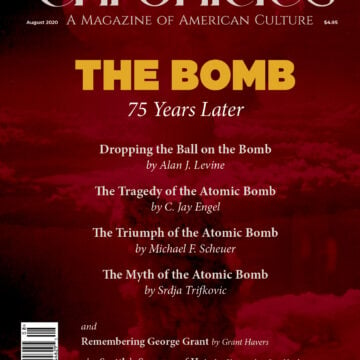Unraveling modern confusion about the decision to drop the atomic bomb. There is still a remarkable amount of confusion about one of the last acts of World War II: the use of the atomic bomb. The destruction of Hiroshima and Nagasaki was horrible, but not more so than many other episodes of the war. To keep...
A Decadent Diagnosis
The Decadent Society: How We Became Victims of Our Own Success by Ross Douthat; Avid Reader Press; 272 pp., $27.00 The ancient latin aphorism per aspera ad astra (“through rough things, to the stars”) might well be a fitting epigraph for New York Times columnist Ross Douthat’s latest book. Its cover features a 19th century French illustration of Rabelais’ Gargantua et Pantagruel being fed...
The Triumph of the Atomic Bomb
Overwhelming force is war’s only mercy Alan J. Levine must be praised for his courage in discussing the United States’ atomic bombings of Japan without the tears, whining, and pleas for international forgiveness that are now requisite. The “confusion” discussed by the author was, of course, present in 1945, but it is now a largely artificial,...
In This Number
Like many historical questions, critical reassessments of the dropping of an atomic bomb on Hiroshima and then Nagasaki 75 years ago have moved generally from right to left. In the 1950s and even later, when National Review was unmistakably on the right, challenges to this decision were almost the orthodoxy of the day. The first time I saw...
Antifa: Nazis Without a Plan
Although I have spent much of my scholarly life warning against inappropriate comparisons between Nazis or fascists and the pet peeves of academics and journalists, I myself am now using the F-word (as in fascist) or really the N-word (as in Nazi) with growing regularity. The antifascist left, about which I have just finished writing a...
The Myth of the Atomic Bomb
Japan feared the Soviets, not the bomb For a generation after the Japanese Instrument of Surrender was signed on Sept. 2, 1945, the standard narrative remained fairly straightforward. By deciding to use nuclear weapons—against Hiroshima on Aug. 6 and on Nagasaki three days later—President Harry Truman enabled the realists in Tokyo, also called the peace faction,...
Solid Strategy, Limited Vision
Metternich: Strategist and Visionary by Wolfram Siemann; Translated by Daniel Steuer; Belknap Press, Harvard University; 928 pp., $39.95 All states need a strategy, however rudimentary, in order to survive. Great powers need much more: a viable grand strategy for war and peace is called for to endure in the never-ending struggle for power, land, and resources. As A.J.P. Taylor...
U.S. Dream Turned UK Nightmare
It has been said ad nauseam that when Uncle Sam sneezes, the English bulldog catches the flu. Emulating American rioting has caught on over here with a bang, pun intended. As Douglas Murray wrote in The Spectator, riots are one import “we can do without.” It wasn’t always this way. In tumultuous 1968, the U.S. rioted after...
Don’t Know Much About History
A few years ago, I was fortunate enough to be included in a group meeting with a former adviser to President Trump. At one point, this former adviser asked me what I thought conservatives needed to do to win over younger Americans. I replied that the most important step conservatives could take was to make sure...
Polemics & Exchanges
Bringing Up Buckley In his response to Jack Trotter’s essay on William F. Buckley, Jr. (“Defense of Bill Buckley,” Polemics and Exchanges, June 2020), Tom Pauken writes that Ronald Reagan as president “orchestrated an effective strategy that won the Cold War and dismantled the Soviet Empire.” This is a common misconception among both the right and...
Hobbes, the First Individualist
Too many conservatives get Thomas Hobbes wrong. In a recent piece for The Imaginative Conservative, Bradley Birzer argues that the famed 17th century English philosopher is responsible for supplying the recipe for “a collectivist horror.” He credits Hobbes with having “inspired countless tyrants,” and says that “his collectivist nightmare…is not just the stuff of George Orwell[’s] and...
Remembering George Grant
The Unconventional Tory In an age beset by anxiety over the survival of the nation-state and social traditionalism, the Canadian thinker George Parkin Grant (1918-1988) is an indispensable guide to making sense of the modern predicament. Although he contributed to the field of political philosophy, his major works feel more like the stuff of prophecy. In...
What the Editors Are Reading
Stendhal was the pen name of Marie-Henri Beyle, who adopted it from the name of a German town he had seen with Napoleon’s army. His 1839 novel of the Napoleonic era, La Chartreuse de Parme (The Charterhouse of Parma), was welcomed by a favorable and important review by Honoré de Balzac, and André Gide, an astute critic, included...
Slaying Dragons, Coddling Snakes
The Dragons and the Snakes: How the Rest Learned to Fight the West by David Kilcullen; Oxford University Press; 336 pp., $27.95 When the West defeated the Soviet Union, CIA Director R. James Woolsey, Jr., observed that we had “slain a large dragon” only to face a “bewildering variety of poisonous snakes.” Hamas, Hezbollah, al-Qaeda, and a proliferation...
Seattle’s Summer of Hate
“We’ve got four blocks in Seattle that you just saw pictures of that is more like a block party atmosphere. It’s not an armed takeover… We could have the Summer of Love.” —Seattle Mayor Jenny Durkan These sanguine and rather evocative words were uttered on CNN the other evening by Seattle’s mayor. She was speaking...
The Tragedy of the Atomic Bomb
Marching toward imperialism On Oct. 5, 1946, just over one year after the deployment of two atomic bombs in Japan, Senator Robert A. Taft stood in front of an audience at Kenyon College and excoriated his country for dropping the bombs. In doing so, he issued a devastating critique of the developing disconnect between the pursuit...
Books in Brief
The Shortest Way With Defoe—Robinson Crusoe, Deism, and the Novel, by Michael B. Prince (University of Virginia Press; 350 pp., $69.50). Daniel Defoe’s 1722 novel A Journal of the Plague Year has been much-read recently, for obvious reasons. But of course we remember him chiefly for 1719’s Robinson Crusoe, which was immediately popular for its new, realistic style, and...
Defending Ourselves Without Hate
The radicals under the flags of Antifa and Black Lives Matter who are trashing our cities and destroying our monuments say they are fighting against “white supremacy.” BLM, on its website, lists as chief among its goals to “end white supremacy forever.” The prominent Rose City Antifa chapter lists on its site white supremacy as...
The Virus Sidelines Europe’s Right Wing
COVID-19 has rendered Europe’s right-wing parties all but obsolete, at least in the near-term. Nationalist parties like Alternative für Deutschland (AfD, “Alternative for Germany”) and the Dutch Partij voor de Vrijheid (PVV, “Party for Freedom”) had built their electoral clout upon anti-migration sentiment. But the centrists have robed themselves in new patriotic colors, robbing the nationalists in Western Europe of...
A Bit of British Virtue Signaling
Politics is downstream from culture—so said Andrew Breitbart, that somewhat uncouth American media man. Well, for us Brits, culture and politics are downstream from America, and sometimes it feels as if the currents run too fast. In recent days, Britain, taking after America, has been convulsed by a widespread rage against the perception of racial injustice....
Alien Intuitions
The Vast of Night Directed by Andrew Patterson ◆ Written by Andrew Patterson and Craig W. Sanger ◆ Produced by GED Cinema ◆ Distributed by Amazon Studios Shirley Directed by Josephine Decker ◆ Written by Sarah Gubbins based on a novel by Susan Scarf Merrell ◆ Produced by Los Angeles Media Fund ◆ Distributed by...
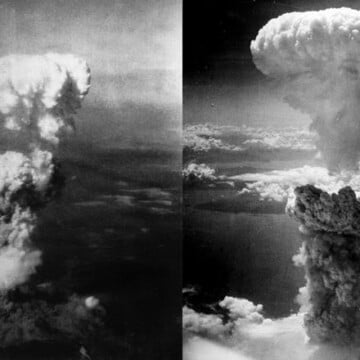
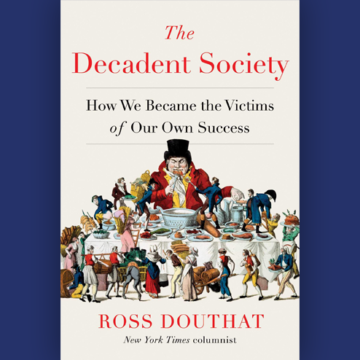
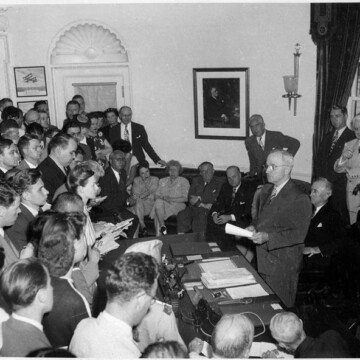


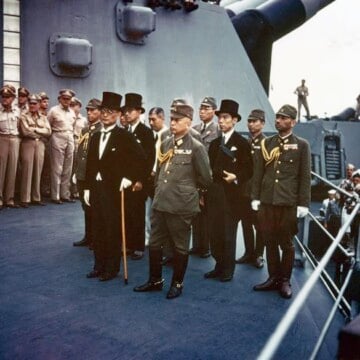
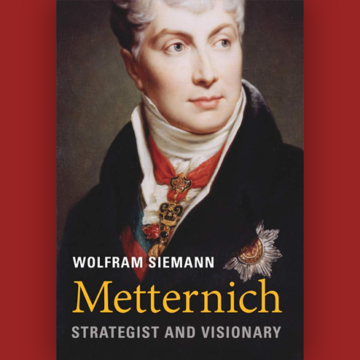
![Faces and license plates are replaced to protect the identity [brighter AI] U.S. Dream Turned UK Nightmare](https://chroniclesmagazine.org/wp-content/uploads/sites/3/2022/04/58fbd7dbeaf94d31b6dca3cecf87c1dd1-360x360.jpg)




